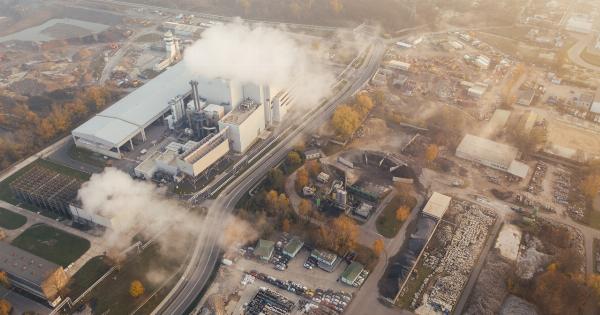Obesity has become a worldwide epidemic, affecting millions of individuals of all ages and socio-economic backgrounds. The rising prevalence of obesity has significant implications not only for individual health but also for the environment.
This article explores the negative impact of obesity on both health and the environment, highlighting the interconnectedness of these two issues.
Health Consequences of Obesity
Obesity is associated with a myriad of health problems, ranging from cardiovascular diseases and diabetes to certain types of cancer and musculoskeletal disorders.
The excess accumulation of body fat puts individuals at a higher risk of developing chronic illnesses, reducing both the quality and length of life.
Economic Burden
The economic burden of obesity is vast and multifaceted. Healthcare costs associated with obesity-related diseases are staggering, placing a heavy strain on healthcare systems worldwide.
Moreover, the reduced productivity and increased rates of absenteeism among obese individuals have significant economic repercussions.
Environmental Implications
While the consequences of obesity on health are well-established, its impact on the environment is often overlooked.
Obesity has several indirect effects on the environment, ranging from increased fossil fuel consumption to heightened greenhouse gas emissions. These implications stem from various factors, including transportation, food production, and waste management.
Transportation and Carbon Emissions
Obesity contributes to increased transportation needs, as obese individuals often require more space or utilize motorized means for mobility. This leads to higher fuel consumption and subsequent carbon emissions.
Additionally, the reliance on private vehicles over active forms of transportation becomes more prevalent among obese individuals, further exacerbating environmental degradation.
Food Production and Agricultural Practices
The excessive consumption of calorie-dense, processed foods is a major contributor to the obesity epidemic.
To meet the demand for such foods, agricultural practices have shifted towards mass production, intensifying the use of fertilizers, pesticides, and other environmentally damaging inputs. Large-scale livestock farming also significantly contributes to deforestation, water pollution, and greenhouse gas emissions.
Food Waste and Resource Depletion
Obesity is closely linked to excessive food waste. Overconsumption and the tendency to buy more than necessary contribute to higher levels of food waste, which in turn strains environmental resources.
The production, transportation, and disposal of wasted food require substantial energy inputs and contribute to greenhouse gas emissions, exacerbating climate change.
Urban Planning and Green Spaces
Obesity rates are higher in urban areas characterized by limited access to green spaces, such as parks and recreational areas. The absence of safe and accessible outdoor spaces discourages physical activity and promotes sedentary behavior.
Consequently, urban planning should prioritize the creation of green spaces to encourage active lifestyles and combat obesity.
Socio-Economic Disparities
Obesity disproportionately affects individuals from lower socio-economic backgrounds. Limited financial resources often translate into restricted access to fresh, nutritious foods.
This contributes to the consumption of cheaper, calorie-dense foods that are often nutritionally poor. Addressing socio-economic disparities and promoting food affordability and accessibility are crucial aspects of combating obesity and promoting environmental sustainability.
Policy Interventions
To address the intertwined issues of obesity and environmental degradation, effective policy interventions are necessary.
These interventions should focus on multiple levels, including individual behavior modification, community initiatives, and governmental regulations. Strategies such as promoting healthier food options, implementing incentive programs for physical activity, and improving public transportation can have positive effects on both individual health and the environment.
Conclusion
Obesity is not simply an individual health concern but also a pressing environmental issue. The adverse health consequences of obesity are well-documented, but the environmental implications are often understated.
Recognizing the interconnectedness of these two issues is essential for developing comprehensive strategies and interventions that promote both human well-being and environmental sustainability.






























